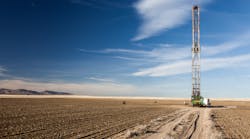On this page in the January issue of Flow Control we ran an editorial titled “The Truth About Shale Gas,” which called for an end to the political wrangling over shale gas drilling in the United States. This column generated some thoughtful reader responses, providing added perspective on the topic of shale gas drilling. Two such responses are included below. If you would like to comment on this topic, I encourage you to post in the “Shale Gas Drilling” Discussion on the Flow Control Facebook page at facebook.com/FlowControlMagazine.
Calling for Sensible Oversight
You ask, “Can natural gas be extracted from shale rock without risking contamination of the drinking water supply?” Yes it can. And the result will be the creating of another industry unto itself (more jobs). If we can convert seawater and wastewater into drinking water and cross-drill miles underground, my hunch is that we can devise reasonable methods to assure the safety of our water supply while pursuing a very valuable commodity (shale gas).
I suspect the results of the $1.9 million government study will be just as overreaching and ambiguous as the GHG (greenhouse gas) initiative – another misguided EPA-driven fiasco that is now on its fourth or fifth iteration (excuse me if I’ve lost count).
The shale gas industry holds huge potential for businesses small and large, but it must be allowed to flourish with sensible oversight (with input from the private sector) and unambiguous regulations that are driven by sound science, not politics.
Why Strict Regulation Is Required
I live at the epicenter of the Marcellus Shale gas drilling capital in north central Pennsylvania – Hughesville, Pa. I live just outside of the borough limits, less than a mile east of the main intersection of town along the main artery into the gas fields in the very rural hills that surround the community.
Penndot (Pennsylvania’s Department of Transportation) recently rebuilt and widened the main intersection in town and reworked and repaved the state highway along which I live. Without an actual count, the traffic seems to have nearly tripled or more, with caravans of well-drilling equipment going to the gas fields, starting approximately a mile beyond my home.
This area was put on the map when, less than two years ago, a news report touted the scope of Marcellus Shale natural gas deposits. The people of this area have been reeling ever since, attempting to learn the pros and cons of the large gas drilling companies and the wildcat drilling subcontractors.
People who had been land rich but dollars poor have become instant millionaires. One interesting shift in dynamics has been that it used to be that most of the money in the area was in the hands of the business owners and management, but suddenly, the formerly poor struggling wannabe farmers have struck it rich.
I have a little different insight into the matter – I was born a coal-cracker from the anthracite “hard” coal regions 60 or 70 miles to the east. After receiving a technical education, I realized there were few jobs to be had. Forty-plus years ago I accepted a job here, away from the mines.
My dad himself was a miner until age 29 when he found work as a meter man for the local electric company. My grandfather died when dad was 15 years old, and dad, being the oldest of five siblings, had to quit school and go to work in the mines to help his mom (my grandmother) support the family. Later he returned to school and graduated at age 28 while working second shift in the mines – a NON-traditional student for sure.
Now, for the insights from dad: The reason the scarred landscape exists today is because the regulating authorities did not make the fines stiff enough. The regulations required the coal companies to post a bond assuring that they would redress the landscape, but in reality, what the coal operators did was forfeit the bond – it was cheaper than fixing their mess. They walked away, laughing all the way to the bank.
I strongly advocate strict regulation [of shale gas exploration and drilling] with fines that are too stiff to walk away from and put real teeth into the enforcement. I welcome the well drillers and the money they infuse into our local economy – we need it – but don’t allow them to rape and plunder our landscape and natural resources.

